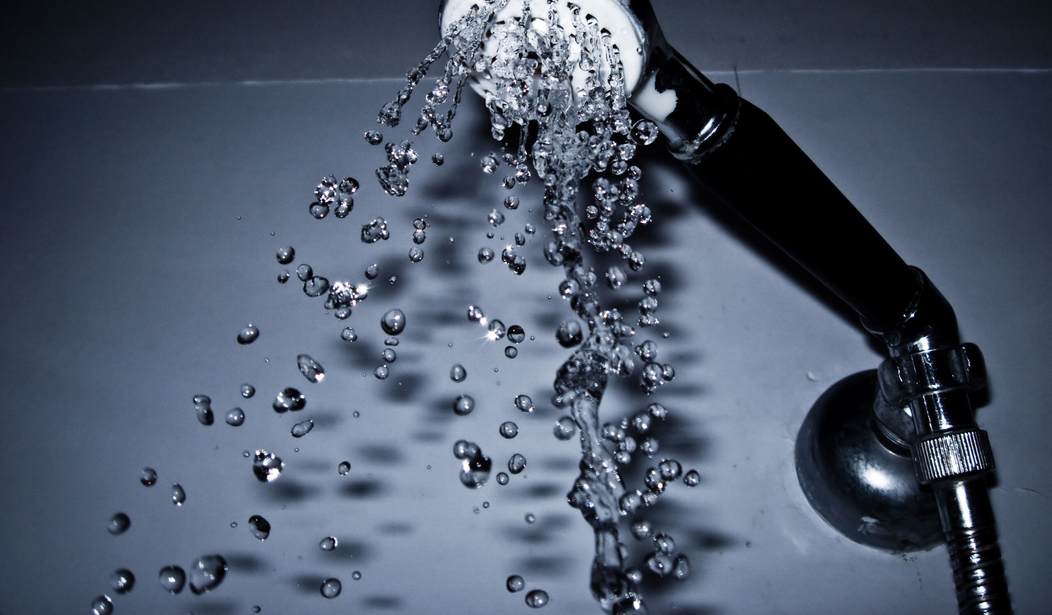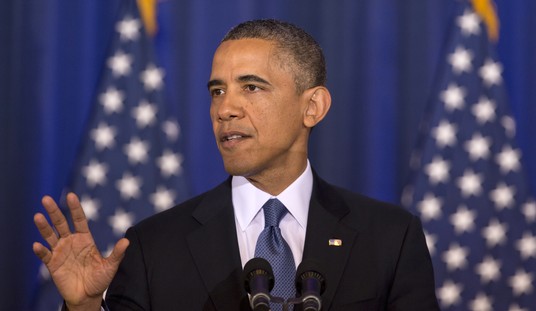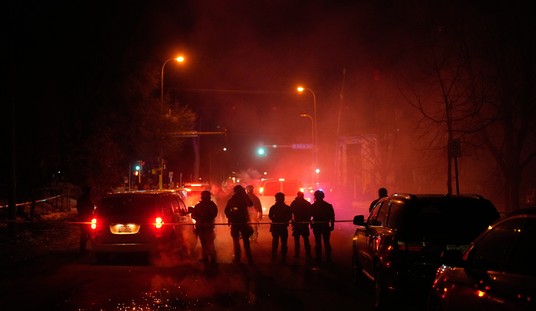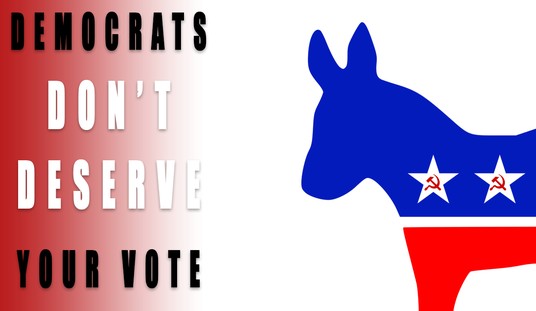One of the upsides of life near the equator, in addition to a cornucopia of odd fruits not available to the north, is sunshine all year round. I haven’t taken a vitamin D supplement for years now.
One of the downsides of life near the equator is a lamentable dearth of cold water out of the tap. Occasionally, if you get up high enough in certain regions at this latitude, you can catch some mildly cold water. But it’s almost always lukewarm. When I lived in the United States and later in Ukraine and Georgia (the Eastern European country, not my home state in the U.S.), however, I took cold showers all the time.
I first became aware of the potential health benefits of cold showers, and cold exposure more generally, from an excellent Vice documentary — when Vice still produced excellent documentaries, before it went woke and then broke — on a gentleman from Holland called Wim Hof, aka The Ice Man.
Related: Nazi Collaborator George Soros Reportedly Considers Buying Failed VICE Media
Hof has achieved many remarkable feats, which he credits to a combination of cold exposure, breathing techniques, and meditation. These feats, which are well-documented to ease the minds of skeptics, include running a marathon in the desert with no water, climbing Mt. Everest barefoot in a pair of shorts, and subjecting himself and his twelve “disciples” to injections of a bacterial endotoxin under supervised conditions in a hospital, voluntarily jacking their epinephrine levels from their hospital beds (previously thought not possible), and as a consequence not succumbing to the illness that affects everyone else who receives the same infection.
Via Proceedings of the National Academy of Sciences of the United States of America (emphasis added):
Hitherto, both the autonomic nervous system and innate immune system were regarded as systems that cannot be voluntarily influenced. The present study demonstrates that, through practicing techniques learned in a short-term training program, the sympathetic nervous system and immune system can indeed be voluntarily influenced. Healthy volunteers practicing the learned techniques exhibited profound increases in the release of epinephrine, which in turn led to increased production of anti-inflammatory mediators and subsequent dampening of the proinflammatory cytokine response elicited by intravenous administration of bacterial endotoxin. This study could have important implications for the treatment of a variety of conditions associated with excessive or persistent inflammation, especially autoimmune diseases in which therapies that antagonize proinflammatory cytokines have shown great benefit.
“The cold is my teacher,” is Hof’s mantra.
I was impressed some nine years ago when I learned of all of this, and I took up cold showers, in addition to the breathing technique.
Let’s survey some of the clinical literature regarding cold exposure.
Potential Benefit #1: Revved-Up Metabolism
Brown adipose tissue, also known as simply “brown fat,” is a unique type of fat (adipose) tissue that is heavily implicated in metabolism (the burning of calories). Its evolutionary function is to maintain body temperature in adverse conditions, such as cold weather.
Per Harvard Medical School, “Trpv1-positive smooth muscle cells gave rise to the brown energy-burning version of fat cells especially when exposed to cold temperatures… Brown adipose tissue is the major thermogenic organ in the body, and increasing brown fat thermogenesis and general energy expenditure is seen as one potential approach to treating obesity.”
Via Public Library of Science (PLOS) One:
Cold exposure in mammals elicits behavioral and physiological responses that minimize heat dissipation (e.g. vasoconstriction, huddling) and increase heat generation (e.g. shivering, activation of brown adipose tissue [BAT])…
Cold exposure increases food intake, energy expenditure, thermogenic capacity, and expression of BAT activation genes.
Potential Benefit #2: ‘Feel-Good’ Neurotransmitter (Endorphin) Release
You might be familiar with endorphin cascade in the context of aerobic exercise, aka the “runner’s high.”
Via Medical Hypotheses (emphasis added):
Exposure to cold is known to activate the sympathetic nervous system and increase the blood level of beta-endorphin and noradrenaline and to increase synaptic release of noradrenaline in the brain as well. Additionally, due to the high density of cold receptors in the skin, a cold shower is expected to send an overwhelming amount of electrical impulses from peripheral nerve endings to the brain, which could result in an anti-depressive effect.”
Potential Benefit #3: Increased Blood Flow
Via North American Journal of Medical Sciences (grammatical errors in the original):
Cold exposure (CE) to small surface area produced compensatory vasodilatation in deeper vascular system resulting increased blood flow to the tissues underlying the site of exposure. This vascular reaction occurs mainly to maintain constant deep tissue temperature.
In patient[s] with chronic heart failure (CHF), thermal vasodilatation following warm-water bathing and low-temperature sauna bathing (LTSB) at 60°C for 15 min improves cardiac function.
Potential Benefit #4: Fewer Sick Days
Taking off from work or school stinks, as does getting sick to begin with. Fortunately, there’s pretty decent evidence that regular cold exposure can reduce the severity of the common cold, flu, etc.
Via Public Library of Science (PLOS) One (emphasis added):
In this pragmatic randomized controlled trial, routinely showering (hot-to-) cold resulted in a 29% reduction of self-reported sick leave from work but not illness days at 90 days follow-up in adults without severe comorbidity. The contrast between the results of both primary outcome parameters is suggestive of the fact that the intensity rather than the duration of symptoms is modulated by the intervention. Regular physical activity resulted in a 35% reduction of sickness absence. The combination of routine (hot-to-) cold shower and regular physical activity resulted in an expected 54% reduction of sickness absence compared to people who don’t do either.
Potential benefit #5: Strengthened Immune System
Related to #4 and the above-referenced experiment regarding voluntary activation of the innate immune system achieved by Wim Hof, cold exposure may fortify the immune system by increasing the concentration of various cells associated with immunity.
Via European Journal of Applied Physiology:
With the continuation of the cold water immersions (three times a week for a duration of 6 weeks) a small, but significant, increase in the proportions of monocytes, lymphocytes with expressed IL2 receptors (CD25) and in plasma tumour necrosis factor alpha content was induced…
That the stress-inducing noninfectious stimuli, such as repeated cold water immersions, which increased metabolic rate due to shivering the elevated blood concentrations of catecholamines, activated the immune system to a slight extent.
There are many more plausible mental, physical, and spiritual upsides to cold exposure buttressed by clinical investigation, but I’ll stop here for now.
My over-arching approach to life is that we generally ought to be doing what our ancestors did, as human physiology evolved alongside the natural conditions in the environments that they found themselves in, optimized to thrive therein.
This applies to fasting for extended periods on occasion (there being no refrigerators or grocery stores in forests) and regular movement (cars also being absent in nature) as well as it applies to cold exposure.
Related: Could This Single FREE Lifestyle Habit Be the Ace Anti-Aging Charm?
We weren’t meant to remain sedentary in air-conditioning all day, grazing like cattle on processed knick-knacks from Frito-Lay.
Is this overly simplistic? Perhaps. But the wisest advice often is.










